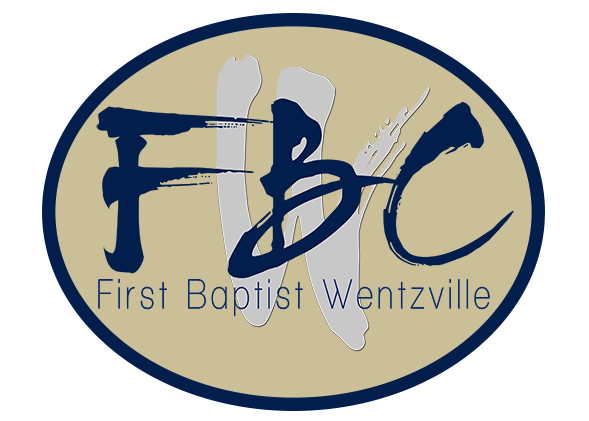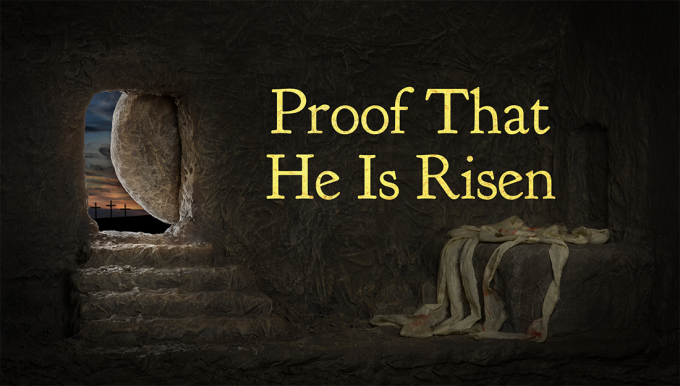Two of the greatest evidences for the resurrection of Christ are found in the life of the Apostle Paul and in James the half-brother of our Lord and Savior Jesus. Just stop and think about it for a minute.
The Apostle Paul, originally named Saul, grew up in a wealthy Jewish family in Tarsus. It was a very progressive oriental city and people of wealth were able to keep their Tarsian citizenship. He was raised in the lap of luxury and then sent off to study at the best university in Jerusalem, under the most respected teacher of the day, Gamaliel. He studied Greek culture and started to move his way up the ranks of leadership among the Jews by finding himself assigned to destroying the followers of Christ, and he pursued his assignment with great zeal. He was hardly a friend of the church or a follower of Christ. He hated Christ and what He stood for, and couldn’t wait to do whatever he could to rid the world of this threat to Judaism.
But Saul was ravaging the church, and entering house after house, he dragged off men and women and committed them to prison. Acts 8:3 (ESV)
James, the half-brother of our Lord, was the same. A devout pious Jew, committed to Judaism and even though he saw with his own eyes the sinless, perfect life of our Lord, he did not believe He was the Messiah. He shared with the other half-brothers of Jesus unbelief which apparently lasted throughout Jesus’ earthly life and ministry. He was hardly a friend of the church or a follower of Christ.
After this Jesus went about in Galilee. He would not go about in Judea, because the Jews were seeking to kill him. 2 Now the Jews’ Feast of Booths was at hand. 3 So his brothers said to him, “Leave here and go to Judea, that your disciples also may see the works you are doing. 4 For no one works in secret if he seeks to be known openly. If you do these things, show yourself to the world.” 5 For not even his brothers believed in him. John 7:1-5 (ESV)
But something happened that changed their lives forever.
I mean Saul became Paul, perhaps the most effective missionary in the history of the church. His passion and love for Jesus was evidenced by the gospel he preached and the life of service that he lived. He exchanged the “good” life for the life of a poor missionary, who suffered physically at the hands of those opposed to the gospel until his death as a martyr, a disciple, a follower of the Lord Jesus Christ.
And James, the half-brother of Jesus, became a believer and follower of Christ, serving as the pastor of the church in Jerusalem until he also gave his life as a martyr for the cause of Christ.
What happened? They both saw the Lord; they both were changed by an appearance of the living resurrected Christ and their belief and trust in Jesus as the Messiah.
But Saul, still breathing threats and murder against the disciples of the Lord, went to the high priest 2 and asked him for letters to the synagogues at Damascus, so that if he found any belonging to the Way, men or women, he might bring them bound to Jerusalem. 3 Now as he went on his way, he approached Damascus, and suddenly a light from heaven shone around him. 4 And falling to the ground he heard a voice saying to him, “Saul, Saul, why are you persecuting me?” 5 And he said, “Who are you, Lord?” And he said, “I am Jesus, whom you are persecuting. 6 But rise and enter the city, and you will be told what you are to do.”
Acts 9:1-6 (ESV)
For I delivered to you as of first importance what I also received: that Christ died for our sins in accordance with the Scriptures, 4 that he was buried, that he was raised on the third day in accordance with the Scriptures, 5 and that he appeared to Cephas, then to the twelve. 6 Then he appeared to more than five hundred brothers at one time, most of whom are still alive, though some have fallen asleep. 7 Then he appeared to James, then to all the apostles. 8 Last of all, as to one untimely born, he appeared also to me. 9 For I am the least of the apostles, unworthy to be called an apostle, because I persecuted the church of God. 10 But by the grace of God I am what I am, and his grace toward me was not in vain. On the contrary, I worked harder than any of them, though it was not I, but the grace of God that is with me.
1 Corinthians 15:3-10 (ESV)
Their lives completely changed; their purpose...from selfish to selfless; where their provision came from...from their own hand to the hand of God; the power to live life...from hopeless to hopeful, able to live life and overcome; their passions... from worldly to Godly.
There is no plausible explanation why two such men would give up what the world thinks is important to gain what Christ says is important except they saw the risen Lord and believed and cast their lot with Him until death.
Hard to argue with that evidence, no matter who you are.
But I have to acknowledge that there are many other evidences out there that demonstrate that Jesus is alive and the Savior of the world.
And you are one of those evidences...witnesses of the life changing relationship that is experienced by followers of Christ.
People can see the difference in your life.
Before you choose a vocation, you search the mind and will of God and follow His leadership
Before you choose a partner for life, you seek and asks the Lord who he wants you to marry.
Before you choose a school to attend, you seek the wisdom and direction of the Lord and follow His direction.
When you need help to overcome a struggle, or pain from a broken world, you go to Christ, who loves you and made you and knows you better than anyone and knows exactly what you need at the moment you need it.
You go to a church that’s not driven by market strategy but by the power of the Lord.
The list goes on and it goes on as you are led by the Spirit in the everyday opportunities of life.
You are so different from the world; they can’t help but notice the contrast between the way they live in this broken world and the way you live in this broken world and just how much you depend on Christ for everything.
Like Paul and James, your life in Christ is one of the most compelling evidences that Christ is alive and well. You’re living proof. Right?
I guess that’s what He meant when He said, “ But you will receive power when the Holy Spirit has come upon you, and you will be my witnesses in Jerusalem and in all Judea and Samaria, and to the end of the earth.” Acts 1:8 (ESV)



